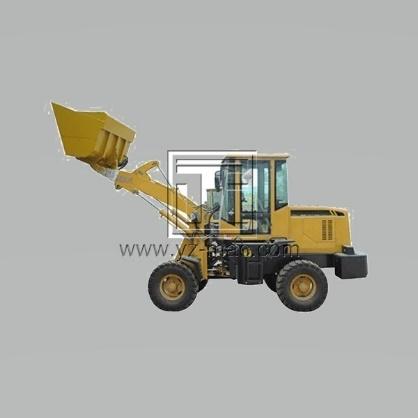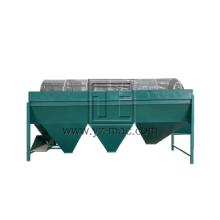Compost fertilizer machine
A compost fertilizer machine, also known as a compost fertilizer production line or composting equipment, is a specialized machinery used to convert organic waste into high-quality compost fertilizer. These machines streamline the composting process, ensuring efficient decomposition and nutrient-rich fertilizer production.
Efficient Composting Process:
Compost fertilizer machines are designed to accelerate the composting process, allowing for rapid decomposition of organic waste. They create an optimal environment for microbial activity, promoting efficient breakdown of organic materials and enhancing composting speed. These machines ensure that the composting process is completed in a shorter timeframe compared to traditional composting methods.
Integrated Design:
Compost fertilizer machines often consist of multiple components integrated into a production line. These components may include shredders, mixers, compost turners, granulators, and drying systems. The integrated design ensures a smooth and continuous operation, facilitating the transition from raw organic waste to high-quality compost fertilizer.
Enhanced Decomposition and Nutrient Release:
Compost fertilizer machines optimize the decomposition process, resulting in the production of nutrient-rich fertilizer. Through effective mixing, aeration, and moisture control, these machines create favorable conditions for microbial activity, accelerating the breakdown of organic matter. As a result, essential nutrients such as nitrogen, phosphorus, and potassium are released in a form readily available for plant uptake.
Customized Fertilizer Formulation:
Compost fertilizer machines allow for the customization of fertilizer formulations based on specific crop and soil requirements. These machines enable the blending of compost with additional nutrients, such as micronutrients or specific ratios of NPK (nitrogen, phosphorus, and potassium). Customized formulations ensure that the resulting compost fertilizer meets the nutritional needs of different plants and enhances soil fertility.
Reduction of Environmental Impact:
By converting organic waste into compost fertilizer, these machines contribute to sustainable waste management practices. They help divert organic waste from landfills, reducing methane emissions and environmental pollution. Compost fertilizer machines also minimize the reliance on synthetic fertilizers, which can have adverse effects on the environment, by providing a natural and organic alternative.
Cost Savings:
Using compost fertilizer machines can result in cost savings for agricultural operations. By producing compost fertilizer on-site, farmers can reduce the need for external fertilizer purchases, thereby lowering input costs. Additionally, compost fertilizer machines allow for the utilization of organic waste materials that would otherwise be discarded, providing a cost-effective solution for waste management.
Increased Crop Yield and Soil Health:
Applying compost fertilizer produced by these machines improves soil fertility, structure, and water-holding capacity. The organic matter and beneficial microorganisms in the compost enhance soil health, promoting nutrient availability and root development. As a result, crop yield, quality, and overall plant health are improved, leading to more sustainable and productive agricultural practices.
Conclusion:
Compost fertilizer machines play a vital role in converting organic waste into nutrient-rich compost fertilizer. These machines optimize the composting process, enhance nutrient release, and offer customization options for specific fertilizer formulations. By utilizing compost fertilizer machines, agricultural operations can achieve cost savings, reduce environmental impact, and improve soil health and crop productivity. These machines are an essential tool for sustainable agriculture and contribute to a more sustainable and circular approach to organic waste management.






